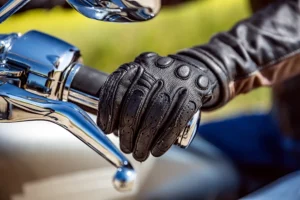Understanding No-Fault Insurance in Florida Motorcycle Accidents

If you’re involved in a motorcycle accident in Florida, understanding how no-fault insurance applies to your situation is crucial. Florida’s no-fault insurance system has specific implications for motorcyclists, which differ from those for passenger vehicles. Here’s a breakdown of what you need to know.
What is No-Fault Insurance?
No-fault insurance is designed to provide coverage for medical expenses and other related costs regardless of who is at fault in an accident. In Florida, this system is primarily applied to passenger vehicles, such as cars and trucks. For motorcyclists, the rules are somewhat different, which is important to understand if you ride in the Sunshine State.
Florida’s No-Fault Law and Motorcycles
Florida’s no-fault insurance law requires drivers of cars and trucks to carry Personal Injury Protection (PIP) coverage. This insurance covers medical expenses and lost wages up to a certain limit, regardless of who caused the accident. However, this requirement does not extend to motorcycle riders.
Motorcyclists in Florida are not mandated to carry PIP coverage. Instead, motorcycle insurance policies typically include coverage for property damage, liability, and sometimes medical payments. Given this, if you are in a motorcycle accident, you will rely more heavily on your motorcycle insurance policy and any health insurance you have to cover medical expenses.
What Should Motorcyclists Do?
Since PIP is not required for motorcycles, it’s crucial to ensure you have adequate motorcycle insurance coverage. Here are a few steps to consider:
- Review Your Insurance Policy: Check your current policy to understand the extent of your coverage, including any provisions for medical payments.
- Consider Additional Coverage: Look into options for increased medical payment coverage or an umbrella policy that might offer extra protection in case of severe injuries.
- Keep Detailed Records: After an accident, document all medical treatments, expenses, and related costs. This will be useful for any potential claims or legal actions.
- Consult a Legal Professional: Given the complexities of insurance claims and potential liability issues, consulting with a personal injury attorney can help you navigate the process and ensure you receive fair compensation.
Conclusion
While Florida’s no-fault insurance laws provide a layer of protection for drivers of cars and trucks, motorcyclists must rely on their insurance policies and personal health insurance for coverage. Understanding these differences and preparing accordingly can help you better handle the aftermath of an accident and ensure you’re not left with unexpected financial burdens. Consult with an experienced personal injury attorney for guidance on how to file a claim for compensation for damages suffered after a motorcycle accident in Florida.

 Call Us Today
- It's Free
Call Us Today
- It's Free